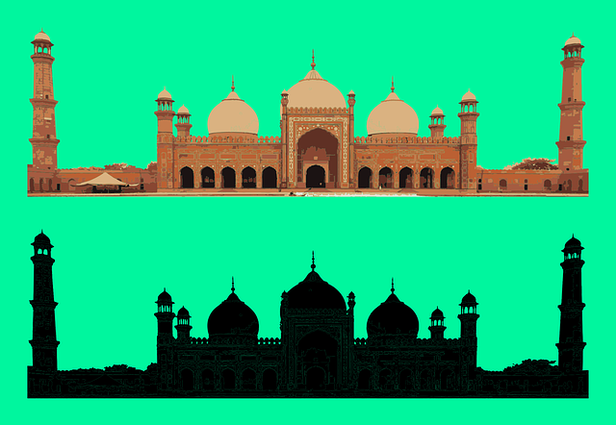Ramzan Fasting Has Life-Changing Benefits – Hindus, Take Note!
Tarun Badghaiya | Mar 01, 2025, 18:44 IST
( Image credit : Timeslife )
Ramzan fasting is more than simply a religious ritual; it's also a scientifically proven health booster that Hindus can benefit from! Islamic fasting, with its systematic practice of refraining from food and water from dawn to sunset, is consistent with intermittent fasting principles, aiding weight loss, detoxification, improved digestion, and mental clarity. Unlike some Hindu fasts, which allow for selective food consumption, Ramzan fasting stimulates autophagy, controls blood sugar, and boosts metabolism. Embracing this strategy can help Hindus improve their health while also promoting interfaith harmony. Discover why Ramzan fasting could be the ultimate health secret you've been missing!
Fasting has been an integral part of various religious traditions across the world, including Hinduism, Christianity, and Islam. Fasting during Ramzan (Ramadan) stands out for its planned and scientifically helpful approach. While fasting is a religious obligation for Muslims, its benefits are not confined to them. Even Hindus who fast in different ways, such as Navratri, Ekadashi, and Karwa Chauth, can incorporate Ramzan fasting ideas into their spiritual and physical routines to achieve overall well-being.
During Ramzan, Muslims fast from sunrise to sunset and refrain from eating, drinking, and engaging in other physical activities. Unlike some Hindu fasts, which allow fruits, milk, or certain meals, Ramzan fasting adheres to a strict zero-calorie intake requirement for a fixed length each day. At nightfall, the fast is usually broken with dates and water, followed by a nourishing feast known as Iftar.
From a scientific standpoint, this type of fasting is consistent with the concepts of intermittent fasting (IF), a diet pattern that has acquired enormous popularity because of its multiple health benefits.
1. Ramzan Fasting's Scientific Advantages for Weight Loss and Metabolism Control In essence, Islamic fasting is a type of time-restricted eating in which food is only eaten for a set amount of time.
2. According to studies, these eating habits aid in using stored energy to reduce body fat.
3. Increasing metabolism, which improves nutrition absorption and digestion.
4. Preventing conditions including diabetes, high blood pressure, and heart disease that are linked to obesity
5. Cleaning and Digestive Health

1. This helps to flush out toxins from the liver and kidneys.
2. Regenerate gut bacteria, improving overall digestive health.
3. Reduce inflammation, leading to better immunity and disease resistance
4. Sensitivity to Insulin and Blood Sugar
According to research, fasting lowers the risk of type 2 diabetes by controlling blood sugar levels. Insulin sensitivity increases when the pancreas is given time to reset, which improves the body's ability to handle glucose.
Research shows that while fasting increases HDL, it decreases LDL, or bad cholesterol. This lowers the risk of strokes, high blood pressure, and heart disease—issues that are growing more prevalent in contemporary lifestyles.
Fasting has been associated with enhanced cognitive performance. It decreases the risk of Alzheimer's and Parkinson's illnesses by increasing the synthesis of brain-derived neurotrophic factor (BDNF), which stimulates the proliferation of brain cells. Fasters frequently report:
1. Improved memory and focus.
2. decreased tension and worry.
3. Improved emotional stability.
4. The Body's Natural Healing Process: Autophagy.
5. Fasting triggers the process of autophagy, in which cells eliminate damaged components.
6. It aids in repairing cells and lowering the risk of cancer.
7. Improving longevity and skin quality by delaying the ageing process.
8. Boosting immunity and increasing the body's resistance to illness.

Although Hinduism has its own customs about fasting, these are frequently individualised and flexible. There are further advantages to following Ramadan's regimented fasting:
In line with Hindu ideas of tapasya (austerity) and brahmacharya (self-restraint), the discipline of abstaining from food and liquids for a predetermined amount of time fosters self-control and mindfulness.
It can be physically taxing to fast for extended periods of time, often for days, on Hindu holidays like Ekadashi and Navratri. With planned meals at sunrise and sunset, the Ramzan fasting approach is a healthier substitute since it avoids severe weakness and dehydration.
The practice of fasting during Ramzan is a universal act of self-discipline and purification. It fosters interpersonal understanding while encouraging holistic health benefits. Hindus who try this method can experience both spiritual upliftment and physical rejuvenation.
In modern times, people consume excessive processed foods, artificial sugars, and unhealthy snacks. Ramzan fasting acts as a natural detox, eliminating harmful toxins and resetting eating habits

1. To attempt Ramzan fasting, a Hindu can do the following:
2. Have a nutritious breakfast (Suhoor).
3. Include complex carbs (oats, whole grains) and proteins (lentils, eggs, dairy) for sustained energy.
4. Steer clear of sugary or fried foods to avoid energy drops.
5. Keep yourself hydrated. Hydrate well before sunrise and after nightfall.
6. Avoid caffeinated drinks as they cause dehydration.
7. Use Iftar to Break the Fast Wisely
8. Start by rehydrating with water and dates to restore glucose levels.
9. Eat a lunch that is well-balanced and includes proteins, veggies, and fruits.
10. To avoid intestinal discomfort, don't overeat.
11. Develop an attitude of gratitude and mindfulness.
12. Practice prayer or meditation to strengthen your spiritual ties.
Fasting during Ramadan is not only a religious ceremony; it is also a medically supported discipline that enhances emotional, physical, and spiritual wellbeing. Hindus, who already practice fasting in various forms, can incorporate the structured approach of Islamic fasting to reap immense health benefits. In a society where stress, obesity, and lifestyle disorders are common, Ramzan fasting provides a quick and easy method to revitalise the body and mind. It is a global instrument for self-improvement that goes beyond religious practice, demonstrating that the knowledge of one faith may benefit all of humanity.
A. Understanding Islamic Fasting
From a scientific standpoint, this type of fasting is consistent with the concepts of intermittent fasting (IF), a diet pattern that has acquired enormous popularity because of its multiple health benefits.
1. Ramzan Fasting's Scientific Advantages for Weight Loss and Metabolism Control In essence, Islamic fasting is a type of time-restricted eating in which food is only eaten for a set amount of time.
2. According to studies, these eating habits aid in using stored energy to reduce body fat.
3. Increasing metabolism, which improves nutrition absorption and digestion.
4. Preventing conditions including diabetes, high blood pressure, and heart disease that are linked to obesity
5. Cleaning and Digestive Health

mosque
( Image credit : Timeslife )
B. During fasting, the digestive system gets a much-needed break from continuous food intake.
2. Regenerate gut bacteria, improving overall digestive health.
3. Reduce inflammation, leading to better immunity and disease resistance
4. Sensitivity to Insulin and Blood Sugar
According to research, fasting lowers the risk of type 2 diabetes by controlling blood sugar levels. Insulin sensitivity increases when the pancreas is given time to reset, which improves the body's ability to handle glucose.
B. Management of Cholesterol and Heart Health
C. Mental Clarity and Brain Health
1. Improved memory and focus.
2. decreased tension and worry.
3. Improved emotional stability.
4. The Body's Natural Healing Process: Autophagy.
5. Fasting triggers the process of autophagy, in which cells eliminate damaged components.
6. It aids in repairing cells and lowering the risk of cancer.
7. Improving longevity and skin quality by delaying the ageing process.
8. Boosting immunity and increasing the body's resistance to illness.

mosque
( Image credit : Timeslife )
D. Reasons for Hindus to Follow Islamic Fasting
1. Strengthens Spiritual Self-Control
2. A Better Substitute for Extended Hindu Fasts
3. Interfaith Harmony and Shared Health Benefits
4. Ideal for Detox and Lifestyle Reset

islam
( Image credit : Timeslife )
E. Methods for Hindus to Adhere to Islamic Fasting
2. Have a nutritious breakfast (Suhoor).
3. Include complex carbs (oats, whole grains) and proteins (lentils, eggs, dairy) for sustained energy.
4. Steer clear of sugary or fried foods to avoid energy drops.
5. Keep yourself hydrated. Hydrate well before sunrise and after nightfall.
6. Avoid caffeinated drinks as they cause dehydration.
7. Use Iftar to Break the Fast Wisely
8. Start by rehydrating with water and dates to restore glucose levels.
9. Eat a lunch that is well-balanced and includes proteins, veggies, and fruits.
10. To avoid intestinal discomfort, don't overeat.
11. Develop an attitude of gratitude and mindfulness.
12. Practice prayer or meditation to strengthen your spiritual ties.
